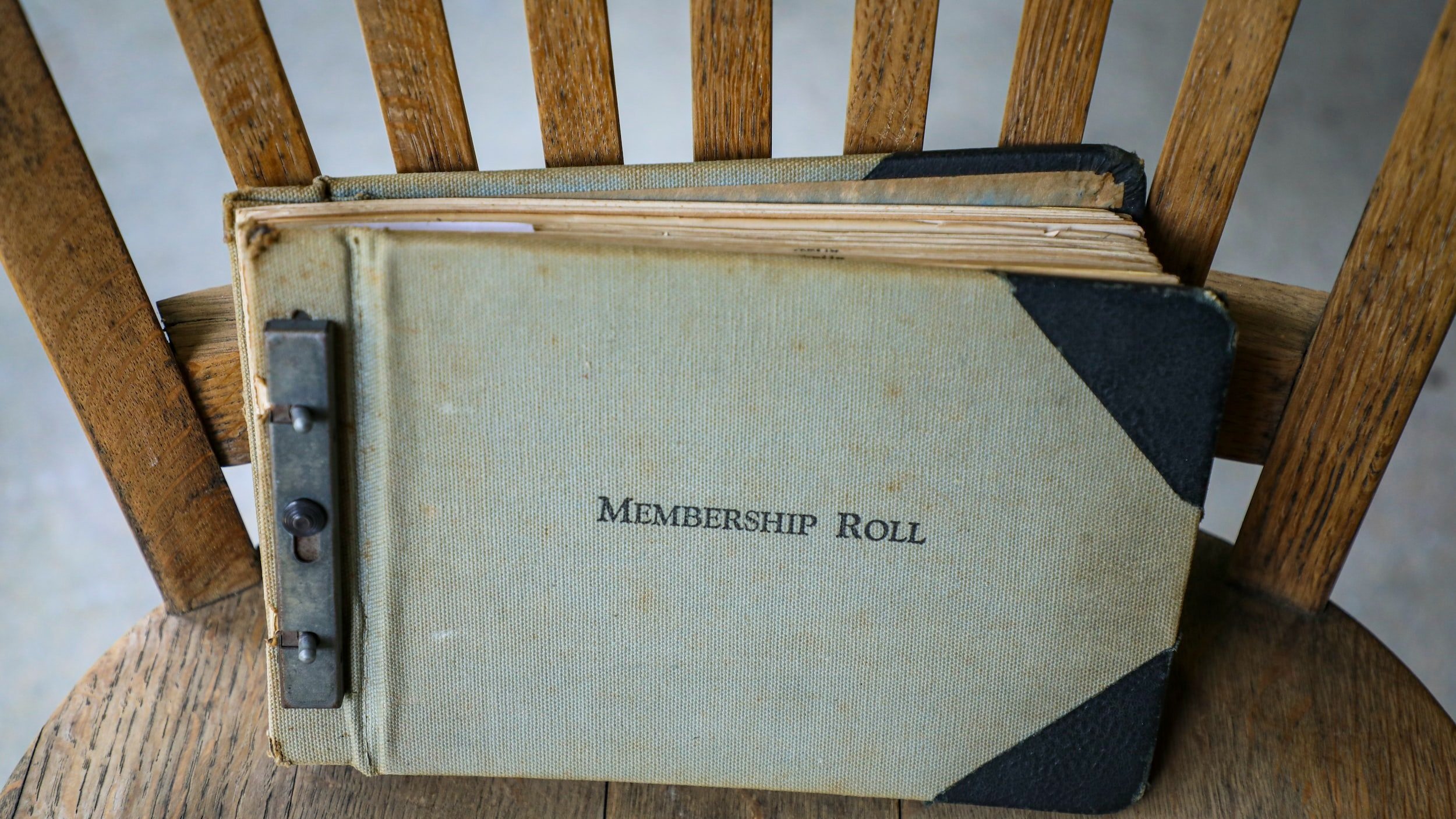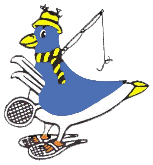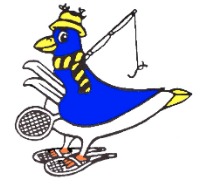
Membership Benefits and Responsibility
The Pigeon Lake Campers Association (“PLCA”) is an Ontario not-for-profit corporation which owns the Pigeon Lake Campers Resort (“PLCR”).
Why Structure as a Non-Profit Corporation, and as a Membership?
As an Ontario not-for-profit corporation with a voluntary Board of Directors, and voluntary management of park recreation events, we keep costs down to break-even maintenance fees through hiring a full-time Park Manager, and a full-time Park Secretary, who in turn hire and manage seasonal maintenance staff and lifeguards. Break-even fee amounts are determined by elected fellow members who volunteer for these Board positions. Some allocation from the fees are made into an asset replacement fund.
The PLCA has 628 voting memberships representing 314 sites within the park.
The park is licensed and provisioned as a seasonal park for overnight stays, with most seasons running from mid May to late October, depending on climate conditions.
Members are allowed maintenance access to their sites all year round.
Non profit motive means no internal profit-motivated resistance to hiring necessary additional specialized staff that aren’t themselves revenue-generating (e.g. recreation directors lifeguards, security staff).
No risk of a surprise owner bankruptcy or sale forcing an expensive relocation.
Members receive audited financial statements annually.
No extra hidden or profit-oriented fees for visitors, storage, parking, etc. The park is managed financially to cover costs.
All maintenance fees are spent for the upkeep of the resort, and not to line the pockets of a landlord or multi-resort corporation.
The majority of the Resort residents at any given moment are not transients. They are all invested equally in this community, the family oriented nature of the park, and take pride in the appearance of their sites and the park.
What does the corporation own?
PLCR is a 44 acre resort in the heart of the Kawarthas.
An enclosed marina with one hundred and sixteen boat slips.
Eight service buildings, a large recreation hall with washrooms and hot showers year-round, and four block area satellite washroom buildings.
An Olympic size in-ground swimming pool.
Fenced in asphalt tennis courts.
Large children’s playground.
Sandy waterfront beach.
314 fully serviced sites with 30 amps and water and sewage hookups.
15 acres of open park land, baseball diamond and shuffleboard court.
Laundry equipment in block area washrooms.
Financial investments as listed on our financial statements.
An Ontario Not-for-Profit Corporation. An Association. A Membership.
Lets us first recognize the important insights and gained awareness from the Truth and Reconciliation Commission. Our eyes are opened and we recognize we are all Treaty People. We respectfully acknowledge that we are on the traditional territory of the Anishinaabe Mississauga adjacent to Haudenosaunee Territory and in the territory covered by the Williams Treaty.
"Kawartha" is an Anglicization of the word "Ka-wa-tha" (from "Ka-wa-tae-gum-maug" or Gaa-waategamaag), a word coined in 1895 by aboriginal Martha Whetung of the Curve Lake First Nations. It was hoped that the word, which meant "land of reflections" in the Anishinaabe language, would provide a convenient and popular advertising label for the area, much as "Muskoka" had come to describe the area and lakes north of Gravenhurst. The word was subsequently changed by tourism promoters to Kawartha, with the meaning "bright waters and happy lands."[1]
Our park is located in this wonderful “land of reflections”. This park allows us to not only see reflections in the water around us but also to experience the space and time to reflect on other aspects of our lives. This park is filled with people who are welcoming and there is a great culture of respect and courtesy within the park. These recent few years in particular, in the midst of a very challenging time for all of us, you will see the efforts of our board, management, employees and park members to keep us all safe and still be able to enjoy the park we all love and appreciate.
Myth: “I’m an owner!” Fact: “I’m a member!”: To any extent that the land we acknowledged above is owned within the laws of Ontario, the not-for-profit Ontario corporation known as Pigeon Lake Campers Association (PLCA) has title. Within that association, there is a membership structure, and individuals are members of this association. You buy a membership with an associated site assignment, and whatever “chattels” (trailer, deck, florida room, shed, etc …) are present on that site as stipulated within your purchase agreement. You also pay an annual fee which in turn contributes to the maintenance of the park, the park’s Asset Reserve Fund (for major repairs or replacement of common elements and assets), and to sustain your membership. There are a few additional fees for optional conveniences, such as a boat dock slip assignment, or a canoe rack assignment, as examples. Members in good standing are often described loosely as “owners”, yet it is actually the Association, PLCA, that is the title holder of the resort, and each of us listed on the membership roster at the Office are the members of that association. These are important notions to understand because for each of us as members, our standing as members is subject to not only the laws of the land, but also the membership rules, regulations and by-laws.
A Manager, Staff, and a Board of Directors
Board: As members we elect a group of volunteer representatives from within the membership to become the stewards of the structure and the corporation for the term of their representation. The term is three years, staggered for some level of continuity so that no more than four Board members are up for re-election, and currently no repeat term limits. These representatives provide “Board of Director” role oversight to the operations of the park, classic structure and as required primarily by the Province of Ontario. The Board keeps the park’s applicable rules, regulations and by-laws relevant in keeping with the times, the laws of Canada, the province of Ontario, and the Municipality of Trent Lakes, and to make any changes, which quite usually involves legal consultation, that may be necessary in any of these governing regulations (ie ONCA - the Ontario Not-for-Profit Corporations Act). As some of you may be aware, a great number of changes were required due to specific provincial legislation - ONCA - which has kept a Board sub-committee busy lately - the Rules and Regulations Committee - with many interactions with our Park Lawyer updating our Park rules, regulations and by-laws, as required by changes within provincial law. It is also important to understand that there is a three-tier list of things for which at one tier the Board is entrusted by the membership to act on behalf of the membership, at a second tier the Board has delegate some decision making and operations authority to the park manager, and on the third tier of items the Board is required to bring changes in front of the entire membership for a membership-wide vote. There are even rules around what forms a quorum that then deems there is an appropriate number of people present for representation of the members’ interests in order to perform any changes. We also give these stewards the mission to hire a Park Manager.
Park Manager: It is the Park Manager that runs the actual day to day operations of the park, with the appropriate decision making powers and latitude granted by the Board. The Park Manager is provided a budget, and that budget includes hiring and managing necessary staff. The Park Manager hires the office staff, lifeguards and maintenance staff, and any key contract workers (such as security). The Park Manager assigns them each work items, and manages their overall work and performance.
Staff: The Park Staff work for the Park Manager. The Park Manager assigns them work items, and manages their performance. Some of this coordination is delegated to the Office Manager and the Maintenance Supervisor, both of whom also carry other tasks. This is important to understand: The staff take their direction from the park manager, not the Board, and not the members, nor family of the members, nor friends of the members, nor visitors of the family or friends of the members, not renters, … you get my point. The Park Staff work for the Park Manager. Members do not direct the staff to do work items and certainly not odd jobs around the park or their assigned site.
Common Discussion Items
Span of Authority of the Board of Directors and/or Management
One common discussion between Members and their elected Board of Directors, or perhaps also the Park Manager, may occur on certain issues, where the Board or the Park Manager has actually been granted the autonomy and purview to act under the Governance Structure of the park, and yet, a member believes that the particular issue in question is too “important” and should have been voted on by the entire membership. As you can imagine, running PLCA with all issues subject to membership-wide quorum vote each issue one at a time would result in very little forward motion, frequent member voting and constant member attention and issue education, and not all members would want to nor be willing to invest the time and energy to properly understand each issue to the level necessary in order to make an informed vote. For efficiency and informed decision making, the membership entrusts the elected Board and Manager with documented and specific autonomy over many such items that are not deemed absolutely core to the park’s structure. Of course that doesn’t mean any of these issues have no impact or consequence. Quite the opposite in fact. Almost every issue has some impact on somebody or everybody. The fundamental question is how much do Members want to make running the Park their daily life’s concern.
Liability and Protecting the Membership and Association
The second area of common discussion between Board and Members is around issues of liability to the PLCA as an Ontario Not-for-Profit Corporation. On such issues, should a problem occur and the PLCA be found at legal fault, summary lawsuits could carry significant financial penalties on the Association. Issues of this nature have occurred in the past. Some of these are subject to required legal confidentiality. For most of these such issues, the PLCA’s insurance premiums pay for coverage to certain limits. However, not all issues are covered, as adding more insurance coverage itself increases the insurance premiums which all of us pay for in higher park maintenance fees, and some judgement amounts against the Association would exceed coverage limits regardless. The Board makes some decisions as a result which appear to go contrary to common sense, yet on further examination are rooted in protecting the Association, and in turn the membership itself, from debilitating financial impact and higher maintenance fees.
Renting
This topic is covered in more detail within Members Topics, so the comment here is that we do still permit members to rent their site to non-members. Given a park of a total of 314 sites there truly have been relatively few problem incidents, yet there have been some that would bring question to whether renting should be permitted or not. Interestingly, so far the vast majority of issues reported to the park manager have been about members or members families or friends not treating other members or park visitors with respect, or not following our membership rules, regulations or bylaws in accordance with behaving as a community. Alcohol, noise and late hours are frequently common attributes when such problems are reported. Behaving in this fashion in your neighbourhood at home may very well result in your neighbours calling the police. Our membership puts additional considerations on our behaviour when compared to our neighbourhoods at home, not less, and our park and our site assets are significant. While not interfering in any legal processes applicable in extreme situations, members are reminded that fines, penalties, and site behaviour accountability falls on that site’s membership. Many of our members live here during the season, each day and every day, and live out of the country during the off season. We continue to monitor the sources and causes of rules, regulations and bylaws issues in order to responsibly assess whether this practice should continue or not, or whether our existing rules, regulations, bylaws and enforcement therein is sufficient as it stands today, notwithstanding the pending changes necessary to be compliant with ONCA (Ontario Not-For-Profit Corporations Act). ONCA is covered in greater detail within Members Topics.
What’s In A Name
We call the place we love “Pigeon Lake Campers Resort”, or “the Park”, or “PLCR”, yet it's not truly a “resort” on the common use of the word. It's not like a hotel where staff are there to look after every need of the paying guests. PLCR is more of a self-service establishment where the amenities provided are for common use and enjoyment, or if you’ve ever lived in a condo then very much like a condo with share spaces and facilities. There are processes for getting concerns addressed, with fair access to these processes, and no one is “entitled” to short-cut the process. All members share our common areas and facilities under our rules, regulations, and bylaws to help keep those amenities available to all.
Membership Gives a Unique Set of Benefits, yet Benefits with Responsibility
To wrap up: The bottom line is that the Board are elected volunteers from across the Park Membership, who along with the Park Manager, Park Staff and many other volunteers from across our community of members, and members family and friends, are putting time and effort into sustaining our jewel in the Kawarthas for all of us to enjoy. The Board are stewards, if you will, to the value and continuation of our park and structure. The Park Manager and Staff work long hours and diligently to service the operations of the Park. Our membership structure fosters aggregation of funds to provide common infrastructure for all of us to share. Sharing means being sensitive to community use and behaving in a way that requires you to give a little consideration to your neighbours, as you also will get a little back in return. That is truly a community. When people take the line of “ownership” instead of “membership”, and take it to mean doing whatever they want, regardless of their fellow members, they are not participating appropriately in this membership. Most of the membership has enjoyed the harmony and benefits that our structure brings, yet sadly, a few members have berated Park Staff, including Lifeguards, in the normal course of their work. “I’m an owner.” “This is my park.” Lifeguards are not responsible for the pool being open or not, and when they restrict numbers in the pool they are upholding Provincial or Municipal laws. Should the Park not meet these regulations there would be serious and punitive consequences placed on the Park, including the closing of the pool, perhaps for the entire remaining season’s length of our annual permit. Ownership does not entitle you to break the law, neither at the lake nor at home. The few Members who persist in such behaviour will face fines and ultimately - for the sake of our community here at the park - have their membership placed under review, risking their Membership status entirely. This is a sad action but protects the rest of the membership and the actual owner - The Pigeon Lake Campers Association (PLCA) - itself from penalties. When a Member loses membership status, the former Member is given a period of time to remove their articles, including trailer, and any other objects from the site, and the assigned site and associated membership is sold to someone else, with whatever site chattels are included within the deal. This is not a happy moment for anyone but it is necessary for the survival of the Park itself, and for the protection of every other Member’s individual financial interest as a Member of the Association. Our founding members understood that these events could happen, and included defined mitigation actions within our structure. Happily, these actions are rarely necessary, as all of us have come to this place to enjoy the lake, the family time and be members of this community.

